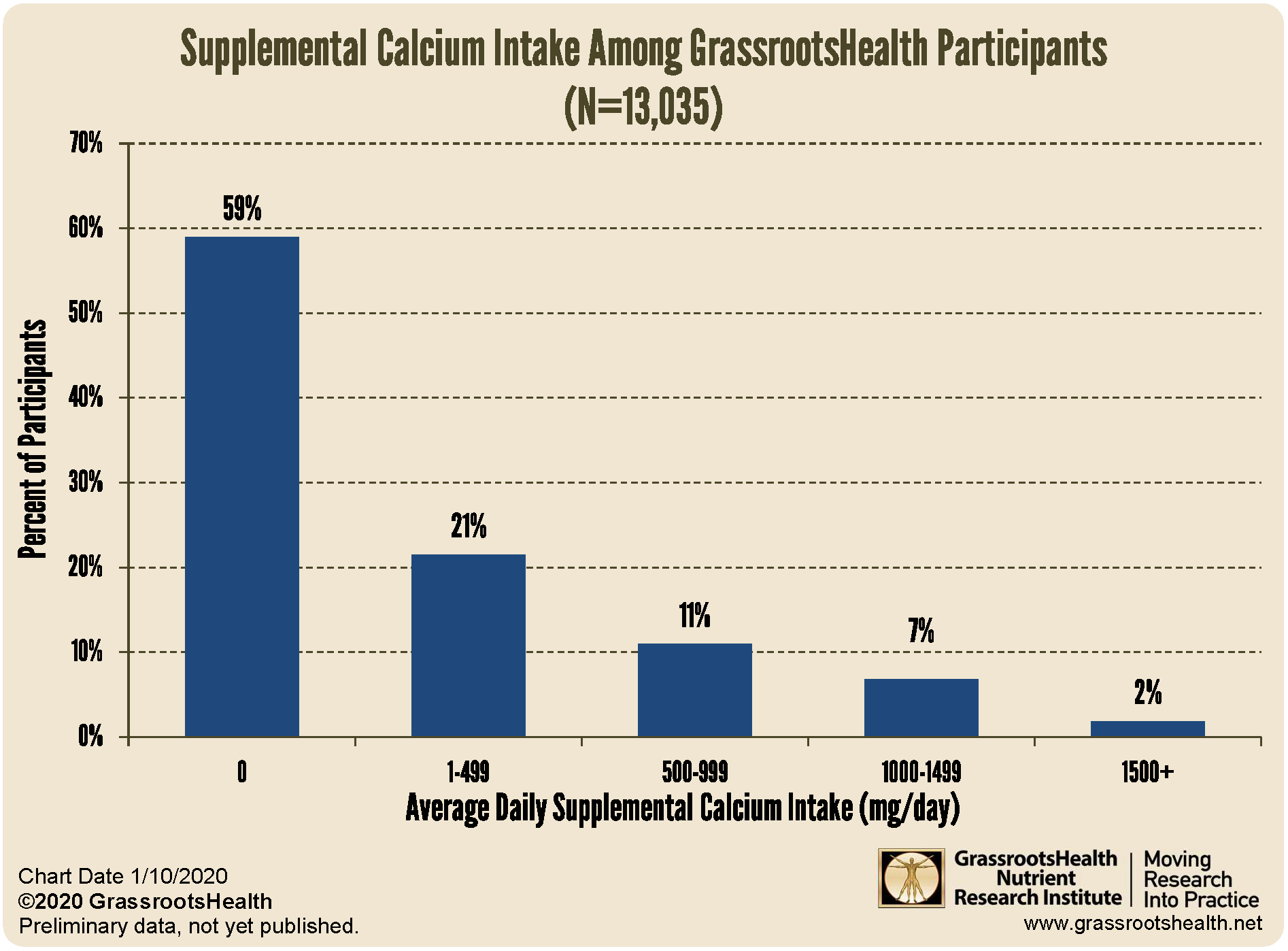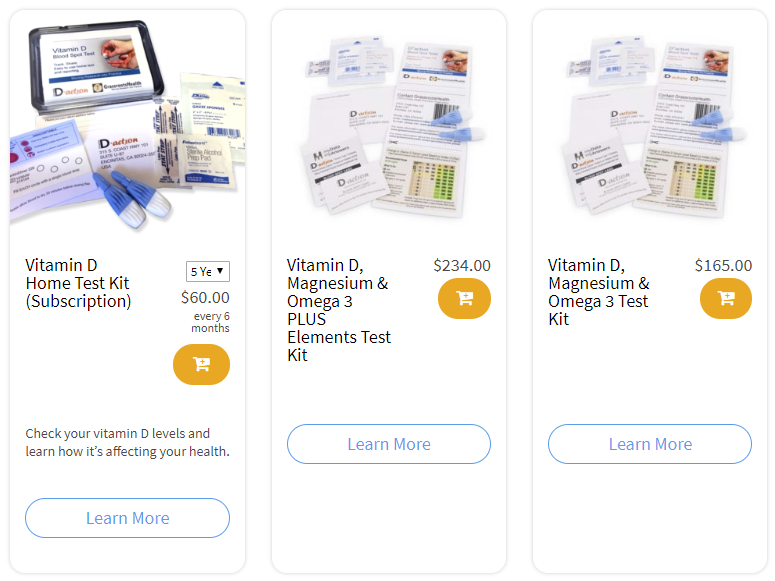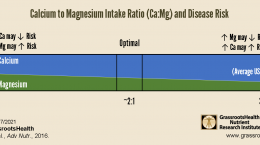Published on January 16, 2020
GrassrootsHealth collects information about supplemental intake amounts for a number of nutrients on its health and lifestyle questionnaire. In a previous blog we showed how much supplemental vitamin C GrassrootsHealth participants report taking. In today’s blog we will summarize reported intake amounts of supplemental calcium.
What is Calcium?
 Calcium is an essential mineral necessary for health. About 99% of calcium in the human body is found in bones and teeth. Calcium is a well-known co-nutrient of vitamin D (which is required for calcium absorption), and is often recommended by doctors in conjunction with vitamin D for bone health. Calcium requirements can be easily achieved through the diet for most individuals, with foods such as dairy, leafy green vegetables, beans and fortified foods. Besides being essential for bone health, calcium also helps regulate nerve transmission, muscle contractions, blood pressure, and blood clotting.
Calcium is an essential mineral necessary for health. About 99% of calcium in the human body is found in bones and teeth. Calcium is a well-known co-nutrient of vitamin D (which is required for calcium absorption), and is often recommended by doctors in conjunction with vitamin D for bone health. Calcium requirements can be easily achieved through the diet for most individuals, with foods such as dairy, leafy green vegetables, beans and fortified foods. Besides being essential for bone health, calcium also helps regulate nerve transmission, muscle contractions, blood pressure, and blood clotting.
We are working together with several scientists to help determine the necessary balance with calcium, vitamin D and magnesium and, of course, omega-3 in health outcomes based on participants’ input. At this point in time, this ‘balance’ is not yet known by anyone, so we encourage all to participate in the Magnesium*PLUS Focus Project to help us provide scientific data to you, to everyone to show what is working!
Supplemental Calcium Intake Among GrassrootsHealth Participants
Among participants who reported a value for supplemental calcium, 41% reported taking some and 59% reported not taking any. The chart below shows the distribution of average daily supplemental calcium intake amounts for over 13,000 participants.
Among those taking a calcium supplement, the median intake amount was 400 mg/day. About half (52%) take less than 500 mg/day, 27% take between 500 and 999 mg/day, and 21% take 1000 mg/day or more.
Test your levels of other essential nutrients
Make sure you know your vitamin D level, and take steps to keep it within a target of 40-60 ng/ml or 100-150 nmol/L! Through GrassrootsHealth Nutrient Research Institute, you can also test your essential elements magnesium, copper, zinc and selenium, toxins such as lead, mercury and cadmium, as well as your omega-3 levels, inflammation levels and thyroid stimulating hormone (TSH) level. Find out your levels today! Log on to the test selection page (click the link below) to get your tests and see for yourself if your levels can be improved.
Make sure you track your results before and after, about every 6 months!
Click Here to Access the Test Page
How can I track my nutrient intake and levels over time?
To help you track your supplement use and nutrient levels, GrassrootsHealth has created an online tracking system called myData-myAnswers. For each specific supplement, you can track what days you take it, how much, and many other details. This will help you know your true supplemental intake and what patterns of use work for you to reach and maintain optimum nutrient levels. Check it out today!








